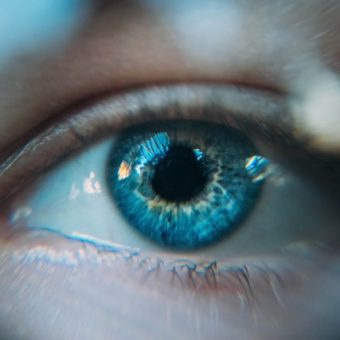Four Weekly Tech Newsletter – May 16
Lead articles from May 16

Company develops AI controlled shoe for the blind
Tec-Innovation recently unveiled smart shoes that use ultrasonic sensors to help people suffering from blindness or vision impairment to detect obstacles up to four meters away. The smart shoe aims to become a modern alternative to the decades-old walking stick that millions of people around the world depend on to get around as safely as possible. The currently available model relies on sensors to detect obstacles…

AI could sway your dating and voting preferences
Fingers touching a smartphone screen. The time on the phone says 9.57. There is an apple in the background. AI algorithms on our computers and smartphones have quickly become a pervasive part of everyday life, with relatively little attention to their scope, integrity, and how they shape our attitudes and behaviours. Spanish researchers have now shown experimentally that people’s voting and dating preferences can be manipulated…

Why AI is set up to fail LBTQ people
AI is going to change our world, that’s inevitable. But in what way it changes our world is still up to us. And for LGBTQ people, often marginalised by traditional systems, we need to be wary of how AI could filter us out. Because if we don’t it could tell our story incorrectly, and leave us behind, as the technology expands. Indeed anthropologist Mary L. Gray, believes AI will “always fail LGBTQ people.” She believes it will be up to us to make sure AI reflects the way we want our world to look.

Analysing AI plans in 34 different countries
The belief that AI dominance is imperative for economic development, military control, and strategic competitiveness has accelerated AI development initiatives across countries. The release of national strategic plans has been accompanied by billions of dollars in investment as well as concrete policies to attract relevant talent and technology.

AI makes great microscopes better than ever
To observe the swift neuronal signals in a fish brain, scientists have started to use a technique called light-field microscopy, which makes it possible to image such fast biological processes in 3D. But the images are often lacking in quality, and it takes hours or days for massive amounts of data to be converted into 3D volumes and movies. Now, EMBL scientists have combined AI algorithms with cutting-edge microscopy techniques – which shortens image processing ftime rom days to mere seconds

AI - how non tech firms can benefit
Even though AI continues to thrive and grow, there remain challenges to use the technology. Just some include finding data scientists, determining the right problems to focus on, getting quality data and scaling the models. No doubt, these problems are even worse for non-tech companies. They generally do not have the expertise to make AI a success.